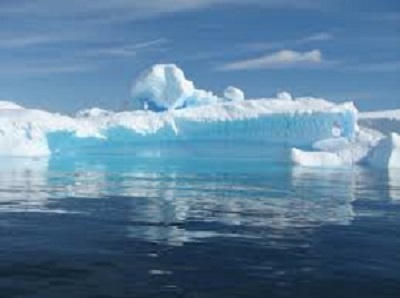About 15,000 years ago, the ocean around Antarctica has seen an abrupt sea level rise of several meters. It could happen again according to Science daily.
University climate researcher Michael E. Weber is a member of the study group. He says, “The changes that are currently taking place in a disturbing manner resemble those 14,700 years ago.” At that time, changes in atmospheric-oceanic circulation led to a stratification in the ocean with a cold layer at the surface and a warm layer below. Under such conditions, ice sheets melt more strongly than when the surrounding ocean is thoroughly mixed. This is exactly what is presently happening around the Antarctic.
The main author of the study, the climate researcher Chris Fogwill, explains the process as follows: “The reason for the layering is that global warming in parts of Antarctica is causing land based ice to melt, adding massive amounts of freshwater to the ocean surface. At the same time as the surface is cooling, the deeper ocean is warming, which has already accelerated the decline of glaciers in the Amundsen Sea Embayment.” It appears global warming is replicating conditions that, in the past, triggered significant shifts in the stability of the Antarctic ice sheet.
To investigate the climate changes of the past, the scientists are studying drill cores from the eternal ice. Layer by layer, this frozen “climate archive” reveals its secrets to the experts. In previous studies, the scientists had found evidence of eight massive melting events in deep sea sediments around the Antarctic, which occurred at the transition from the last ice age to the present warm period. Co-author Dr. Weber says: “The largest melt occurred 14,700 years ago. During this time the Antarctic contributed to a sea level rise of at least three meters within a few centuries.”
The present discovery is the first direct evidence from the Antarctic continent which confirms the assumed models. The research team used isotopic analyzes of ice cores from the Weddell Sea region, which now flows into the ocean about a quarter of the Antarctic melt.
Through a combination with ice sheet and climate modeling, the isotopic data show that the waters around the Antarctic were heavily layered at the time of the melting events, so that the ice sheets melted at a faster rate. “The big question is whether the ice sheet will react to these changing ocean conditions as rapidly as it did 14,700 years ago,” says co-author Nick Golledge.
N.H.Kh

